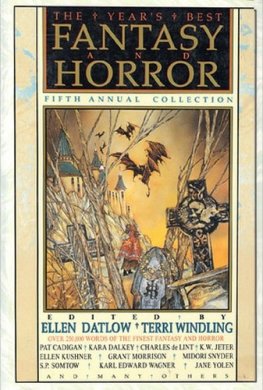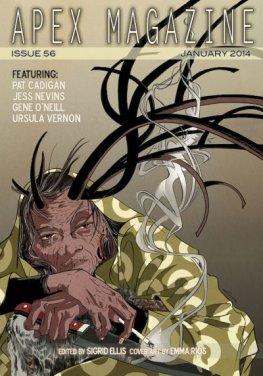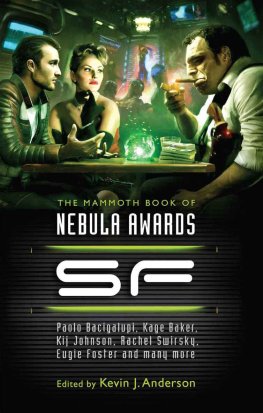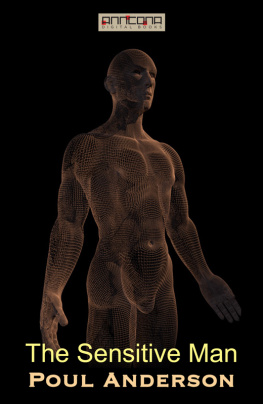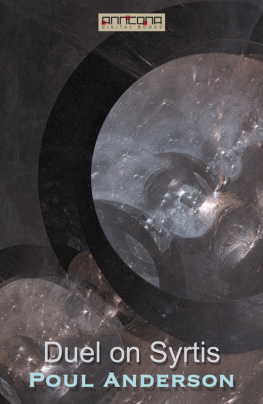G Anderson - Das Steingeschöpf
Here you can read online G Anderson - Das Steingeschöpf full text of the book (entire story) in english for free. Download pdf and epub, get meaning, cover and reviews about this ebook. genre: Romance novel. Description of the work, (preface) as well as reviews are available. Best literature library LitArk.com created for fans of good reading and offers a wide selection of genres:
Romance novel
Science fiction
Adventure
Detective
Science
History
Home and family
Prose
Art
Politics
Computer
Non-fiction
Religion
Business
Children
Humor
Choose a favorite category and find really read worthwhile books. Enjoy immersion in the world of imagination, feel the emotions of the characters or learn something new for yourself, make an fascinating discovery.

- Book:
- Author:
- Genre:
- Rating:3 / 5
- Favourites:Add to favourites
- Your mark:
- 60
- 1
- 2
- 3
- 4
- 5
: summary, description and annotation
We offer to read an annotation, description, summary or preface (depends on what the author of the book "" wrote himself). If you haven't found the necessary information about the book — write in the comments, we will try to find it.
— read online for free the complete book (whole text) full work
Below is the text of the book, divided by pages. System saving the place of the last page read, allows you to conveniently read the book "" online for free, without having to search again every time where you left off. Put a bookmark, and you can go to the page where you finished reading at any time.
Font size:
Interval:
Bookmark:
Das Steingeschpf
G. V. Anderson
I'd not long been made journeyman when the Schpfers' Guild gave me my first commission in 1928. Frau Leitner from Bavaria had written to request a small restoration I took the southbound train from Berlin, made two changes, and disembarked at the end of the line in a small town tucked between the pleats of the mountains. A ragged man with a horse-drawn cart was waiting for me. We travelled by lamplight up a steep, icy path to the front door of an old timber chalet.
All was dark and quiet. I jumped down, the snow crackling beneath my weight, and turned to thank the driver. He'd already clicked to the horse and was turing the cart around, grimly avoiding my eye. He spat a wad of sooty phlegm towards me which landed on one of my new Guild-issued boots with a soft splot.
I shouldn't have been surprised, but I was, every time: even a Schpfer's status couldn't protect me from this. I had curly hair, a sloping forehead, and dark, prominent eyes. An easy target. I wanted to shout at his retreating back that I had worn my fair share of rags too, that my pristine clothing wasn't due to some Jewish conspiracy. But I swallowed my words, of course, as I always had. I pulled out a handkerchief and knelt to wipe my boot.
The creak of the cart's wheels had faded by the time I trudged up to the door of the chalet.
I knocked; a woman with kingfisher eyes opened the door. "Wer sind Sie?"
"Frau Leitner?" I said. "I'm from the Guild."
She backed away to let me in. I ducked beneath the lintel the low ceiling beams forced me to stoop.
"Thank you for coming, Herr Schpfer," she said. Her voice was gravel, full of cracks and pops.
"Please, Herr Hertzel is fine," I replied, waving away the formal title. "I'm sorry to call on you so late. The journey took longer than I expected."
As I spoke, she led me into a small kitchen where a fire was dying in the grate. The logs looked suspiciously like chair legs. I shed my scarf and gloves, keeping my coat on for warmth, set my leather tool case on the table, and took a seat while Frau Leitner unhooked the kettle hanging over the fire. When she bent closer to the light, I could make out her features. The little details of this memory the fabric of her coat, wool or cotton; the grain of the worktops, rough or smooth they have, with time, disintegrated like flesh. They elude me now. But I do remember her face. It is a Schpfer's habit, I suppose, to remember interesting faces. She was quite chinless, her bottom lip blending into her neck almost seamlessly, and her cheeks had a deflated, gaunt look that told of too much weight lost too quickly. Her hair was more grey than blonde. Old enough for grown children.
I knew better than to ask their whereabouts.
She poured tea into chipped mugs, and as she sat down, burst into an eye-watering coughing fit. She covered her mouth with a shaking hand, her cheeks flushing. I rose from my chair, unsure what to do, but she waved me down.
"That doesn't sound too healthy," I said.
"It comes and goes," she croaked.
I cleared my throat. "I know it's late, but we should discuss the restoration, if you don't mind. I'd like to get an idea of how much work is needed. What can you tell me about the piece?"
"His name is Ambroise."
"He's French?"
She hesitated, her breath crackling. "Ja, originally."
"And how did he come to be in your possession?"
"He's been with us a long time. My great-grandmother took him in, helped him find patrons for his paintings." She took a tentative sip of tea. "He doesn't much like dealing with strangers, so I help him with it now."
I wasnt surprised by this arrangement many of Ambroises kind find positions with families as companions and teachers. "And it's a small repair?"
She coughed once, and looked away. "His eyes have deteriorated so much, he can hardly see to paint."
After our tea, Frau Leitner showed me upstairs to the attic. The slanted beams were high enough to allow me to stand comfortably, but there were boards covering the windows and I couldn't see anything at all. I began to take a step but Frau Leitner threw an arm across my middle to stop me. "Wait here," she said. With her coat pulled up over her mouth to keep out the dust, she disappeared into the darkness. I heard the splintering of old wood and suddenly starlight was streaming in from a large window, illuminating Frau Leitner as she propped the board against the wall. Perched on a stool in the middle of the room was the largest Steingeschpf I'd ever seen.
Ambroise glowed so eerily in the starlight that he might have been carved from alabaster, not Queckstein. Every muscle was engorged and grotesquely defined. Like with many Steingeschpfe, there were fantastical elements: he had a tail that stretched across the room, as broad and immovable as a felled tree trunk, spikes along his spine, and two twisting ram horns that erupted from his brow, adding another two feet in height at least. Veins of discolouration criss-crossed his chest and shoulders. Moss had colonised the twin hollows of his clavicles and the deep crease of his lower abdominals, which guided the eye downwards to a modest penis.
"Ambroise," Frau Leitner said, breaking my stunned silence, "this is Herr Hertzel, from the Guild.Er will dir helfen."
At the sound of her voice, Ambroise's head tilted. Buried in the midst of a large curling beard, a shapeless slice widened. It wasn't just his eyes that had failed: time had also blunted his mouth. This dilapidation, clearly the work of centuries, and the style of his carving, forced me to ask: "How old is he? Who carved him?"
Ambroise's head swung towards me, but it was Frau Leitner who replied, "De Loynes."
My mouth fell open.
De Loynes had been a French master, alive in the seventeenth century. Ambroise certainly fitted with what I knew of the de Loynes style oversized, detailed, gargoylian monsters but it was impossible: de Loynes's pieces were priceless. They decorated churches across Europe, populated the most exclusive of private collections, and according to the Guild, every piece was accounted for. What on earth was one doing here? And Frau Leitner wanted me a journeyman on his first commission to restore it? It was like asking an art student to restore a Leonardo.
I struggled to speak. "That is an extraordinary claim, Frau Leitner. If it's true, I cannot this restoration deserves a master's skill. I could do irreversible damage He ought to be in a museum, he's a priceless artefact"
The blue shards in Frau Leitner's eyes flashed, dampening the warmth of the gold. "Artefact, she snapped. Possession. You talk about him as if he's a thing."
Id forgotten myself. The Guild had taught me to see Steingeschpfe as pieces of art to be created and repaired; to Frau Leitner, of course, Ambroise was a dear and lifelong friend. I took a deep breath and bowed quickly to them both. "I'm sorry, but I'm not qualified for this commission. Please excuse me."
I stumbled downstairs and through the front door, into the cold, sobering night. The path that had brought me here was already obscured by fresh snow, but the grooves of the cart's wheels were deep enough to follow; I should go directly to the train station and telephone Berlin. But I'd left my scarf and tool case inside, and in any case the shock was catching up to me: my legs were shaking. I sat on the front step, the snow soaking through my coat and trousers, and lit a cigarette. Somewhere above me, Frau Leitner was coughing again.
My Guild badge felt heavy in my breast pocket. I pulled it out, a dark bronze disc just smaller than my palm, and ran my thumb over the embossed chisel-mallet-spark motif. Mine had been hard won, and I still wasn't convinced that I deserved it.
Font size:
Interval:
Bookmark:
Similar books «»
Look at similar books to . We have selected literature similar in name and meaning in the hope of providing readers with more options to find new, interesting, not yet read works.
Discussion, reviews of the book and just readers' own opinions. Leave your comments, write what you think about the work, its meaning or the main characters. Specify what exactly you liked and what you didn't like, and why you think so.

